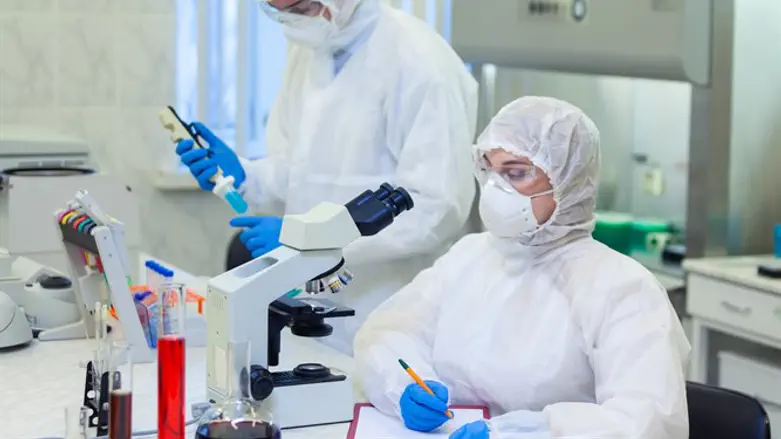
Reinfections with the coronavirus are extremely rare, according to a new study, and tend to be less severe than the first infection.
The study, which was submitted to Cold Spring Harbor Laboratory’s medRxiv system ahead of its peer review, studied the impact of COVID immunity as a result of natural infection on a group of 43,044 people in Qatar who had been previously infected with the virus and tested positive for COVID antibodies.
Researchers tracked the participants for up to 35 weeks, following up for possible reinfections.
According to the results of the study, the reinfection rate for people who already had natural infection (as opposed to immunity via vaccination) was just two per 10,000, or 0.02%, with 99.98% of participants who were infected before not becoming infected a second time at any point during the 35-week tracking period.
In addition, the study found that when reinfection did occur, it tended to be less severe than initial infections, with just one case in the sample of 43,044 in which a person suffered a severe case of COVID after having previously been infected. Two other moderate cases were reported among those with reinfections. No fatal cases were reported among those with reinfections.
“Reinfection is rare,” the authors of the study concluded. “Natural infection appears to elicit strong protection against reinfection with an efficacy >90% for at least seven months.”
“Incidence rate of reinfection versus month of follow-up did not show any evidence of waning of immunity for over seven months of follow-up. Efficacy of natural infection against reinfection was estimated at >90%. Reinfections were less severe than primary infections.”
Importantly, the study found no evidence of declining immunity among those who had prior natural infections, with the rate of reinfection remaining stable throughout the testing period.
“There was also no evidence that antibody-positive persons experienced any waning of protective immunity over time, as the incidence rate of reinfection versus month of follow-up did not show an increasing trend over seven months following the first antibody-positive test.”
“To the contrary, there was a trend of decreasing incidence rate, possibly explained by the (very) slowly declining incidence rate in the wider population of Qatar over the last six months, or possibly by strengthening of protective immunity due to repeated exposures that did not lead to established infection.”
Furthermore, the study suggests that immunity via natural infection is at least as effective as the immunity reached via vaccination.
Based on documented reinfection, immunity from natural infection is 99.98% effective, the study found.
Even when downgraded to account for possible non-symptomatic cases of reinfection, the study estimates that immunity from natural infection is 93% effective at preventing new infections.
By comparison, the Pfizer-BioNTech vaccine now being used in Israel and the US was found to be 95% effective in preventing symptomatic cases of the virus. The Pfizer study included only two months of follow ups after the second dose of the vaccine, with only half the trial participants included, compared to up to seven-to-eight months of follow up in the Qatar study.


